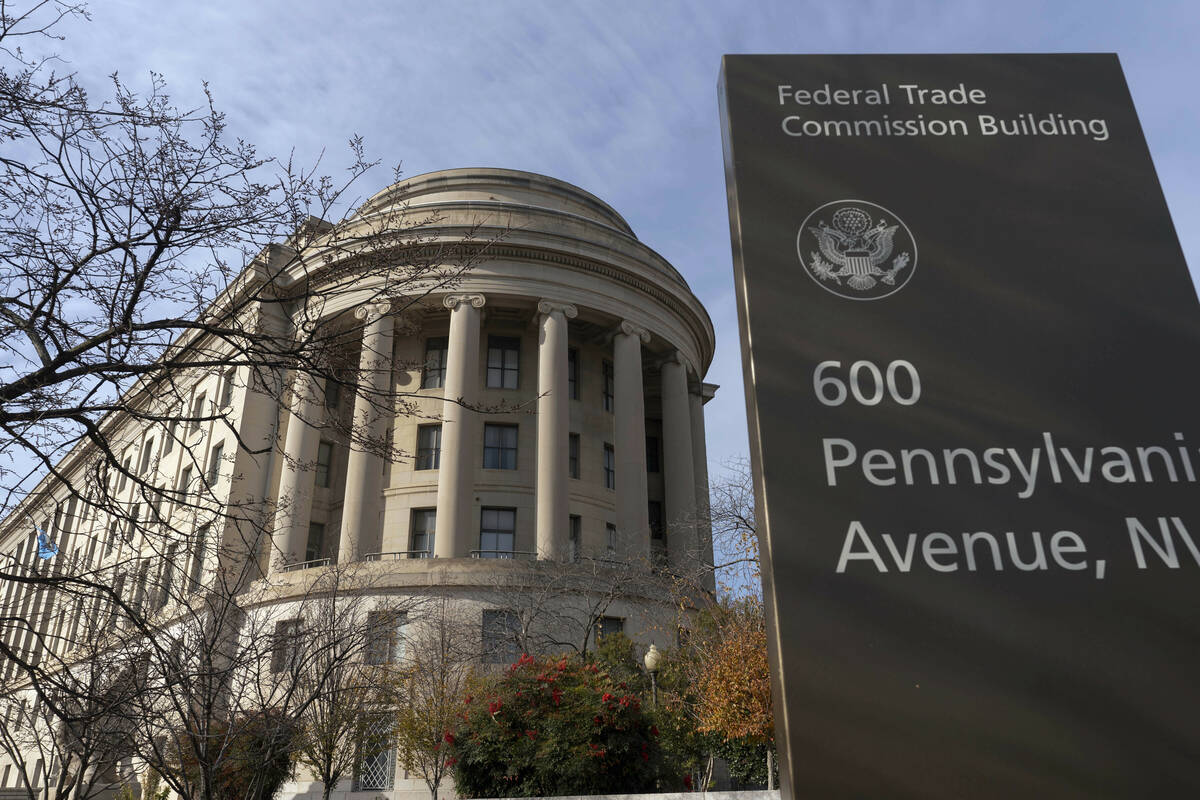FTC bans hidden fees for hotels, live events
The Federal Trade Commission on Tuesday said it will soon require hotels, vacation rental platforms and live event promoters to disclose any fees up front when they list prices.
The FTC said consumers often see advertised prices for hotel rooms, short-term rentals, and tickets to sporting events and concerts only to be surprised later by so-called “junk fees,” including resort fees, cleaning fees, processing fees and other extra charges.
“People deserve to know up front what they’re being asked to pay without worrying that they’ll later be saddled with mysterious fees that they haven’t budgeted for and can’t avoid,” FTC Chair Lina Khan said in a statement.
The rule is scheduled to go into effect in 120 days.
The Associated Press left messages seeking comment Tuesday with the American Hotel and Lodging Association and Ticketmaster.
The Nevada Resort Assocation supports the FTC’s action.
“Our members already clearly and prominently disclose resort fees during the transaction,” said Virginia Valentine, president and CEO of the association. “We support establishing a level playing field across the lodging and travel industry as it pertains to disclosing fees to allow guests to make informed decisions. Our members will review the FTC’s ruling and comply with any new requirements.”
Four of the FTC’s five commissioners voted to approve the rule. Commissioner Andrew Ferguson, — who is President-elect Donald Trump’s choice to replace Khan, was the one dissenting vote.
The rule requires lodging and ticketing businesses to clearly and conspicuously disclose the true cost — including all mandatory fees — when they display any pricing. Businesses that exclude taxes or shipping fees from advertised prices must also disclose them before customers enter any payment information.
The FTC estimates the rule will save U.S. consumers 53 million hours per year of time spent searching for the true price of lodging or events.
The FTC launched the rule-making process in 2022, asking for public input on whether a fee-disclosure rule might help eliminate unfair and deceptive pricing. The agency said more than 12,000 people commented.
Junk fees and deceptive pricing are also one of the reasons the Department of Justice sued Ticketmaster and its parent company, Live Nation Entertainment, earlier this year. The government asked a court to separate the companies, saying they have a monopoly on concert promotion and ticketing that drives up price for consumers.
The Biden administration also has targeted the fee practices of U.S. airlines, banks and online payment platforms.
The Review-Journal contributed to this report.


















